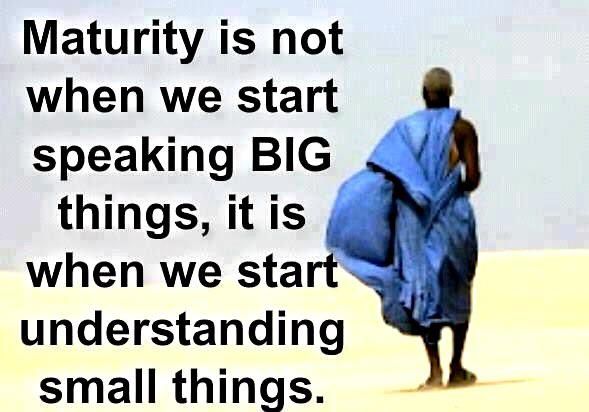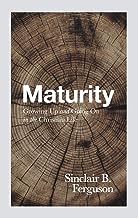Hey there, it’s Ed from Elderly Independence! Today, I want to talk to you about a topic that is truly close to my heart – the empowering aspect of hard-won maturity and how it’s a gateway to elderly independence.
As we age, we accumulate a wealth of wisdom and experiences that help us navigate life’s complexities. This maturity isn’t easily gained; it’s hard-won through years of triumphs and challenges. It’s this very maturity that often acts as a foundation for independence in our golden years.
Having observed and aided in the journeys of many seniors, I can attest to the strength, resilience, and determination that they carry within them. So, let’s dive in and explore how maturity empowers elderly independence, incorporating insights from experts in gerontology, as well as drawing from my own experiences with the elderly loved ones in my life.
Understanding Maturity

Maturity is more than a mere chronological advancement of age. It is a state of emotional, intellectual, and social development that evolves over time, shaping a person’s responses and decisions. This maturity influences how we understand our world, empathize with others, and acknowledge our strengths and limitations.
When viewed through the prism of elderly independence, hard-won maturity carries even greater weight. It helps cultivate self-confidence, enhances decision-making skills, and builds resilience. These are key characteristics that are essential to navigating the twilight years with dignity, grace, and a level of autonomy that enriches life quality.

The Journey to Hard-Won Maturity

Achieving maturity isn’t an overnight event. It’s a life-long journey punctuated by a plethora of experiences and challenges, all of which contribute to the construction of a more resilient and wise individual.
Life experiences and challenges
Our life is a vibrant tapestry of experiences – joy and sorrow, triumph and defeat, love and loss. These experiences, no matter how trivial or profound they seem, play a vital role in shaping our perspective, our responses, and our maturity. Each adversity faced and conquered adds a new layer to our wisdom and our resilience, helping us progress toward hard-won maturity.
The role of resilience and persistence
Resilience and persistence are the silent allies that accompany us in our journey toward maturity. These traits help us to rebound from adversities, persist through challenges, and emerge stronger and wiser. This strengthened emotional fiber and empathetic understanding are hallmarks of hard-won maturity.

Reflections of Hard-Won Maturity in Elderly Independence

Hard-won maturity becomes especially significant when viewed in the context of elderly independence. This value is reflected in several crucial aspects:
Physical Independence
Maturity instills a pragmatic understanding of one’s physical capabilities and limitations. It encourages a proactive approach toward health, promotes the use of assistive technologies when necessary, and underscores the importance of regular health check-ups to maintain physical independence.
Emotional Independence
Maturity also plays a critical role in cultivating emotional resilience. It allows individuals to handle life changes, losses, and periods of loneliness with grace. It fosters a commitment to self-care and mental well-being, components that are vital for emotional independence.
Social Independence
Hard-won maturity helps individuals maintain a healthy balance in social interactions, respecting personal boundaries while engaging in meaningful relationships. It also fosters a sense of community and encourages social connections, which can greatly enrich life experiences.

Strategies to Foster Hard-Won Maturity

While much of maturity is shaped by personal life experiences, certain strategies can facilitate its growth:
Encouraging Self-Reliance
Encouraging elderly individuals to engage in activities that foster self-reliance can enhance their sense of self-worth and independence. This can range from managing personal finances to maintaining personal hygiene or cooking simple meals.
Promoting Life-long Learning
Promoting a love for learning can significantly enhance mental agility. This can involve digital literacy, gardening, painting, or even learning a new language. This continuous learning not only sharpens the mind but also provides a sense of accomplishment and purpose.
Embracing Challenges
Challenges, when viewed from a positive lens, can foster resilience and personal growth. Encouraging elderly individuals to view challenges as opportunities rather than hindrances can greatly contribute to their hard-won maturity.

Frequently Asked Questions
What is the price of a hard-won maturity?
As mentioned earlier, “hard-won maturity” is not a physical product or something that can be purchased. It refers to the personal growth and wisdom gained through overcoming life’s challenges and experiences.
What defines maturity in a person?
Maturity in a person can be defined as the ability to navigate life with emotional intelligence, responsibility, and self-awareness. It involves being able to handle situations with patience and understanding, making thoughtful decisions, and taking responsibility for one’s actions. Mature individuals are generally more empathetic, and respectful, and have a greater understanding of their emotions and those of others.
What is the simple meaning of maturity?
The simple meaning of maturity is the state of being fully developed and showing emotional, mental, and social stability. It entails the ability to handle situations and relationships in a responsible, reasonable, and composed manner.
What is maturity examples?
Examples of maturity include being able to communicate effectively and calmly during conflicts, taking responsibility for one’s actions, showing empathy and understanding towards others, making informed and thoughtful decisions, and having the ability to delay gratification and consider long-term consequences.
What age is maturity level?
Maturity levels can vary greatly among individuals and are not solely determined by age. While certain age groups may generally display more maturity due to life experiences and development, maturity is a complex and individual aspect. Some people may display significant maturity at a young age, while others might take longer to develop mature behaviors and attitudes.
What are the 10 signs of maturity?
The signs of maturity can include:
1. Taking responsibility for one’s actions.
2. Being able to manage emotions effectively.
3. Showing empathy and understanding towards others.
4. Being open to feedback and learning from mistakes.
5. Having the ability to communicate assertively and respectfully.
6. Making thoughtful and informed decisions.
7. Being patient and able to delay gratification.
8. Understanding and respecting boundaries.
9. Being accountable and reliable.
10. Displaying a sense of self-awareness and self-reflection
What are the 3 stages of maturity?
Maturity is not typically divided into specific stages like childhood, adolescence, or adulthood. Instead, it is a continuous and ongoing process of growth and development throughout life. Individuals can continually evolve in their emotional and social maturity as they face various life experiences and challenges.
Other Places For You To Explore
Explore

As we conclude our exploration of how hard-won maturity empowers elderly independence, I hope you now have a deeper understanding of this powerful connection. It’s important to acknowledge and honor the wisdom and strength that comes with aging, and how it underpins independence.
In my role at Elderly Independence, I draw from extensive research and personal experiences to deliver content that is reliable and impactful. I believe in empowering seniors and their caregivers with knowledge and resources that can make their journey smoother and more fulfilling.
If you have any more queries or require additional resources on elderly independence, please feel free to reach out. Together, we can make the golden years truly golden for our loved ones, celebrating their maturity, resilience, and spirit of independence.
For further insights into promoting elderly independence, Aging in Place, a comprehensive guide to the strategies and solutions that make aging in place safer and easier, is an excellent resource. By nurturing this hard-won maturity, we can build a supportive and enabling environment that empowers our elders to live vibrant, fulfilling lives.






